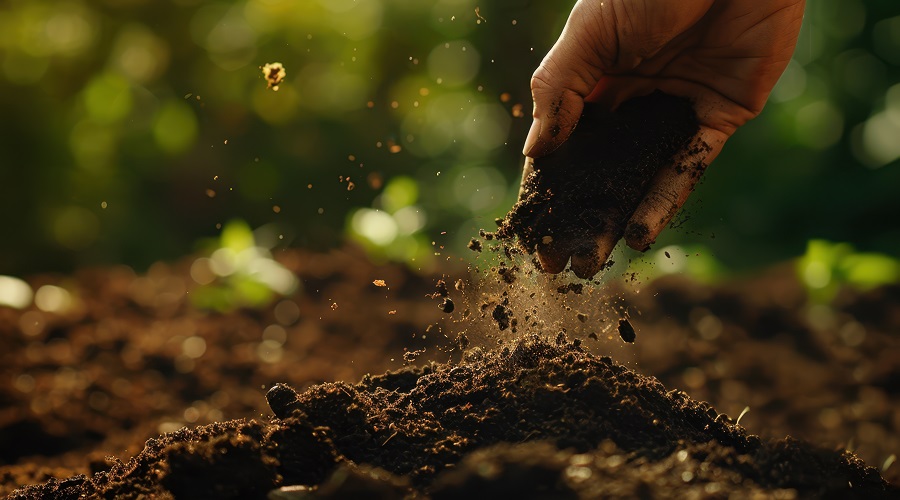The significance of soil microbiomes for the health of plants, animals, and humans is increasingly recognized in scientific research. By better understanding these interconnections, we can make significant progress toward more sustainable agriculture and overall well-being.
Soil microbiomes, composed of bacteria, fungi, archaea, and viruses, play an essential role in soil health. These microorganisms break down organic matter, recycle nutrients, and protect crops from harmful pathogens. Regenerative farming practices, which promote biodiversity and avoid chemical pesticides and fertilizers, help develop soils rich in beneficial microbes. Such soils naturally resist diseases, reducing the need for chemical inputs.
What is the impact on plant nutrition and food quality?
Healthy, diverse soil microbiomes support plant growth and improve nutritional quality. Soils rich in microorganisms enhance the absorption of essential nutrients like calcium, magnesium, and various vitamins by plants. Consequently, foods grown in these conditions are more nutritious for humans and animals. Dan Kittredge, founder of The Bionutrient Institute, highlights that healthier soil microbiomes directly correlate with more nutritious food production. This is because diverse microbial communities in the soil support better nutrient uptake and plant health².
What is the link between soil, human and animal gut microbiome?
Although a direct link between the soil microbiome and the human gut microbiome has not been proven, soil health indirectly influences human health through nutrition. Plants grown in microbially rich soils provide crucial nutrients that support a diverse and balanced gut microbiome in humans. Jack Gilbert, co-founder of the Earth Microbiome project, explains that while healthy soils are essential for growing nutritious plants, the key link to human health is in the diet. Precision nutrition, which tailors dietary recommendations based on individual gut microbiome profiles, can help mitigate chronic diseases and improve overall well-being².
Regarding animals, especially ruminants, can ingest soil microorganisms while grazing. These microorganisms influence the animals’ gut microbiome, improving their health and resistance to diseases. For instance, exposure to soil microbes can enhance immune tolerance and provide neurological benefits to animals. A healthy gut flora in farm animals is essential for their growth, productivity, and general well-being ¹,²
The use of pesticides and chemical fertilizers can disrupt soil microbiomes, reducing food quality and indirectly affecting human and animal health. Chemicals like glyphosate can cause oxidative stress, harming the human gut microbiome and compromising health. Non-regenerative agricultural practices can negatively impact ecosystems and the health of those consuming these agricultural products. K. DiChiara ( Functional Diagnostic Nutrition practitioner and digestive wellness educator) points out that recognizing the interconnections between climate, soil, and the gut microbiome is essential for protecting both human health and the environment².
Conclusion
Advances in soil microbiome research highlight their importance for the health of plants, animals, and humans. By adopting regenerative agricultural practices and reducing pesticide use, we can maintain healthy microbiomes and benefit from the full range of nutrients nature offers. The TRIBIOME project aims to go even deeper, seeking to understand all these interactions comprehensively. Our goal is to push the boundaries further, gaining insights that could revolutionize sustainable agriculture and health.
References:
-
Nature Reviews Microbiology – “Soil microbiomes and one health” (Nature)
-
Natural Awakenings Magazine – “The Microbiome Connection: How Soil and Human Health Are Related” (Natural Awakenings)
Want to know more?
Contact catherine.malingreau@wagralim.be or Follow the project’s LinkedIn page

